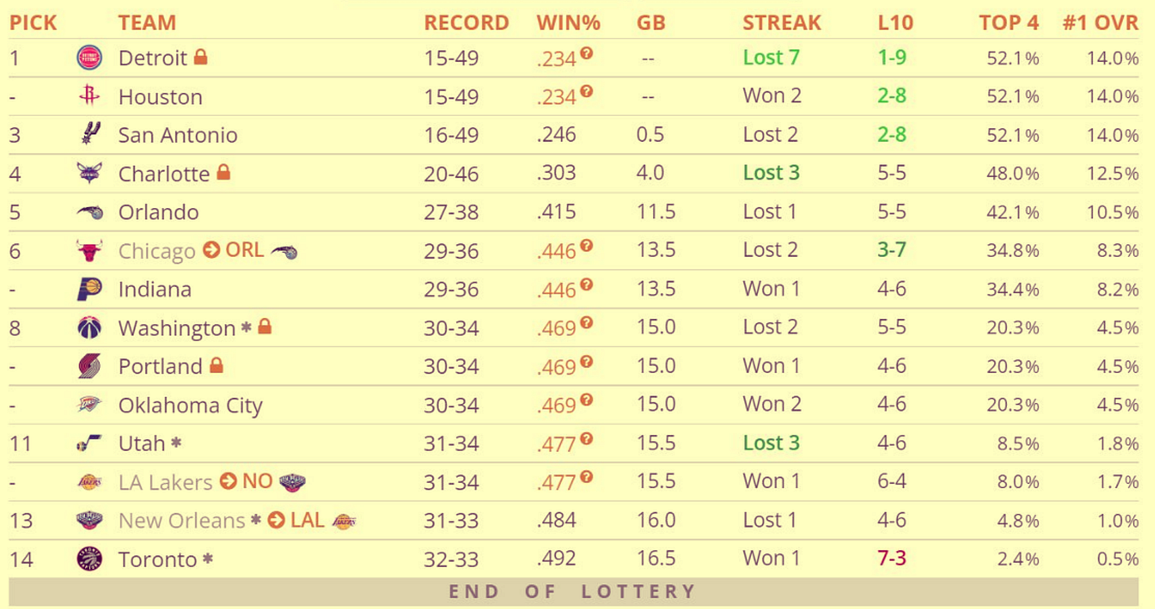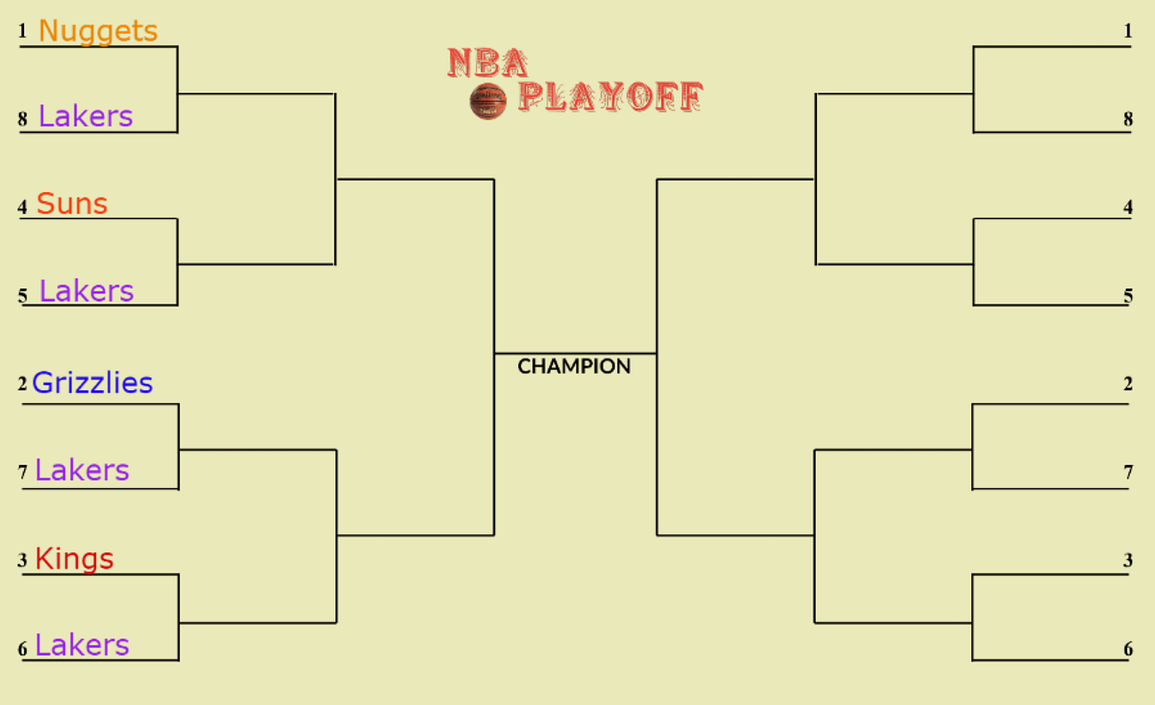While it’s been a frustrating injury-plagued season, Anthony Davis playing like the MVP and the new-look Lakers’ post trade deadline defense are now driving a late-season march to the playoffs that’s looking like a slam dunk.
Over the last 9 games, the Lakers have a 6–3 record, including a 2–2 over the last 4 games without LeBron James and D’Angelo Russell as Anthony Davis and their 2nd ranked defense dominated the paint and the boards.
During those 9 games, the Lakers posted the second best defensive rating at 108.9, the best rebounding rate at 49.9 per game, third most free throw attempts at 28.1 per game, and 6th most possessions for 9 games at 922.
Nagging injuries every time they appear ready to get healthy and a poorly constructed roster the front office was unable to correct until right before the trade deadline have bedeviled the Lakers at every turn this season.
But despite everything that’s happened, the contagious parity in the West and the Lakers’ stubborn refusal to quit has them positioned for the upteenth time this season to jump from lottery team to play-in team.
Let’s look at 5 big reasons why the Lakers are looking like a team that’s not only going to make the playoffs but is also going to be the team that no other NBA team wants to face in the playoffs, especially in the first round.
1. Lakers On Verge Of Making Play-In Tournament

Right now, the Lakers are tied with the Minnesota Timberwolves at 31–34. The Timberwolves get #10 and the Lakers the #11 team because Minnesota owns the tie-breaker, having already beaten the Lakers twice this season.
If the Sacramento Kings beat the New Orleans Pelicans tonight, the Lakers will take over the 10th seed temporarily with a legitimate opportunity to solidify being in the Play-In Tournament by beating Memphis tomorrow.
That would raise the Lakers win-loss record to 32–34 and give them 7 wins in their last 10 games and position them to move up to #7 or #8 seeds to get two shots at making the playoffs or #6 or higher to make playoffs directly.
The Lakers’ worst case scenario is to finish the season in 9th or 10th place, which would require them to win two play-in games to win the 8th seed and the right to face the Denver Nuggets in the first round of the playoffs.
2. Lakers Should Get D’Angelo Russell Back This Week

The single biggest thing the Lakers need right now is to get starting point guard D’Angelo Russell back. Russell sprained his ankle on a fluke injury on February 23rd and is day-to-day but has missed the Lakers last 5 games.
With LeBron James also out, the Lakers’ offense and playmaking have struggled with backup point guard Dennis Schröder starting and backup shooting guard Austin Reaves serving as the team’s backup point guard.
Right now, it’s looking like Russell is still feeling some pain when moving laterally so it’s likely he will miss tomorrow night’s game vs. Memphis. Hopefully, the extra two days off should have D’Angelo ready for Friday.
The good news is the Lakers should be dramatically improved beginning this Friday when starting point guard D’Angelo Russell is likely to return to the starting lineup at Crypto.com Arena against the Toronto Raptors.
3. Lakers Have 4th Easiest Remaining Schedule in NBA

The Lakers have the 4th easiest schedule in the NBA for their remaining 17 games. The only Western Conference team with a more favorable closing schedule is the Dallas Mavericks, who have the 3rd easiest schedule.
The Lakers other Western Conference competitors all have less favorable schedules than the Lakers and Mavs. The #10 Jazz, #5 Warriors, and #6 Timberwolves have the 4th, 7th, and 8th hardest schedules in the league.
The Lakers’ easier schedule could easily be worth a game in the standings against these three teams. The Clippers and Pelicans have the 15 and 25th hardest schedules, which gives the Lakers less of an advantage over them.
Having the 4th easiest schedule gives the Lakers an advantage over most of their competitors in the Western Conference. It could even be enough to save the Lakers from losing a decision due to their lack of tie breakers.
4. Lakers Could Benefit From Playing Tanking Teams

The Lakers have 9 of 17 remaining games scheduled against teams who are or should be tanking. They have single games against the Pelicans, Magic, and Thunder and pairs of games against the Rockets, Jazz, and Bulls.
One of the benefits of the crazy parity in the West is that many of the 10 teams bunched in the middle could just as easily decide to go for a 10% chance of drafting Victor Wembanyama versus going for the playoffs.
For teams who need to win every game, having a tanking team on the schedule could be a huge difference-maker when it comes to racking up enough wins to make the Play-in Tournament or the playoffs directly.
The Lakers play so many teams that are either tanking or should be tanking that making at least the Play-In Tournament is more of a slam dunk now than a long shot and making the Top-6 in the West in still very possible.
5. Lakers Are Team Nobody Wants in Meet In Playoffs.

The Los Angeles Lakers are a slam dunk to make the playoffs this season. They are either going to win enough games to win the #5 or #6 seed in the West or they’re going to win the #7 or #8 seed through the Play-In Tourney.
Should the top-4 in the West remain the same, the Lakers first round opponent if they finish 5th is the Phoenix Suns, if 6th the Sacramento Kings, if 7th the Memphis Grizzlies, and if 8th the Denver Nuggets.
The Lakers can expect heavy jockeying by teams looking to avoid having to play a potentially deadly Los Angeles squad with a healthy and hungry LeBron James and Anthony Davis in the first round of the playoffs.
Right now, the Lakers most likely path to the playoffs is by finishing #7 or #8 in the West, enabling them to have two shots at winning one game to make it to the playoffs as the #7 or #8 seed to play the Nuggets or Grizzlies.
Depending on what happens with Ja Morant, the Grizzlies could find themselves in free fall. It also remains to see whether the Mavs or Clips can put it together to make a run. Most likely Suns and Lakers in West Finals.
It will take a perfect storm of luck and health but it’s possible that the Los Angeles Lakers can not only make the NBA Playoffs but also find lightning in a bottle and go all the way to win their 18th NBA Championship.









